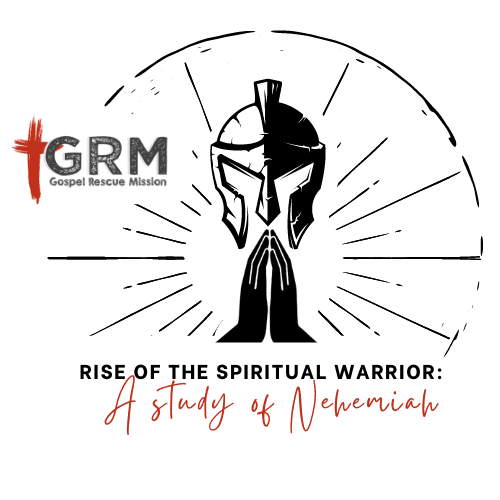God Uses Government to Make the World Better
Governments have existed in various forms throughout human history, and their roles and responsibilities have evolved over time. From ancient monarchies to modern democracies, the concept of governance has been integral to societal development. For many believers, the relationship between God and government is a profound one, rooted in the belief that God uses human institutions to fulfill His divine purposes.
The Divine Origin of Government
The Bible provides a clear foundation for the belief that government is instituted by God. In Romans 13:1-2, the Apostle Paul writes, “Let everyone be subject to the governing authorities, for there is no authority except that which God has established. The authorities that exist have been established by God”. This passage underscores the idea that all governing authorities are ultimately under God’s sovereign control. By establishing governments, God provides a framework for order and justice in society.
Promoting Justice and Peace
One of the primary purposes of government, according to biblical teaching, is to promote justice and peace. Governments are tasked with creating laws that protect the innocent and punish wrongdoers. In Romans 13:4, Paul describes the government as “God’s servant for your good” and an “agent of wrath to bring punishment on the wrongdoer”. This role is crucial in maintaining social order and ensuring that justice is served.
The prophet Zechariah also emphasizes the importance of justice in governance: “Administer true justice; show mercy and compassion to one another. Do not oppress the widow or the fatherless, the foreigner or the poor” (Zechariah 7:9-10)2. By upholding these principles, governments can create a more just and compassionate society.
Facilitating Human Flourishing
Governments play a vital role in facilitating human flourishing by providing essential services and infrastructure. Roads, hospitals, schools, and other public amenities are often the result of governmental initiatives. These services are crucial for the well-being and development of individuals and communities. The Apostle Paul highlights this aspect of governance in his letters, noting that human beings flourish in a context of order and cooperation.
Moreover, governments can create social spaces where good conduct is recognized and encouraged. This idea is reflected in 1 Peter 2:14, which states that governors are sent “to punish those who do wrong and to commend those who do right”. By promoting positive behavior and discouraging wrongdoing, governments contribute to the overall well-being of society.
God’s Sovereign Purposes
God’s sovereignty means that He can use both noble and ignoble governments to accomplish His purposes. Throughout history, God has worked through various rulers and authorities, regardless of their moral standing, to fulfill His divine plans. For instance, the Bible recounts how God used the Jewish and Roman authorities, who opposed Christ, to bring about the crucifixion and resurrection of Jesus, which were central to His redemptive plan (Acts 4:27-28).
This principle is also evident in the story of Joseph in the Old Testament. Despite being sold into slavery and imprisoned, Joseph rose to a position of power in Egypt. God used Joseph’s position in the Egyptian government to save many lives during a severe famine (Genesis 41:41-57). This story illustrates how God can work through governmental structures to bring about His purposes, even in challenging circumstances.
Encouraging Civil Obedience
The Bible encourages believers to be model citizens by respecting and obeying governing authorities. This principle is rooted in the understanding that respecting authority is ultimately an act of obedience to God. In 1 Peter 2:13-14, Peter writes, “Submit yourselves for the Lord’s sake to every human authority: whether to the emperor, as the supreme authority, or to governors”. By being law-abiding citizens, Christians can set a positive example and contribute to the stability and order of society.
However, this call to obedience is not absolute. The Bible also acknowledges the need for civil disobedience in situations where obeying human authorities would mean disobeying God. For example, in Acts 5:29, Peter and the other apostles declare, “We must obey God rather than human beings!”. This balance between obedience and conscientious objection is crucial for maintaining integrity and faithfulness to God’s commands.
Providing Hope and Stability
In times of crisis and uncertainty, governments can provide hope and stability to their citizens. By implementing policies that address social, economic, and environmental challenges, governments can help create a more secure and prosperous future. This role is particularly important in times of natural disasters, pandemics, and other emergencies, where coordinated governmental responses are essential for mitigating harm and providing relief.
The Bible speaks to the importance of wise and just leadership in providing stability. Proverbs 29:2 states, “When the righteous thrive, the people rejoice; when the wicked rule, the people groan”. This verse highlights the impact that good governance can have on the well-being and morale of a nation.
Conclusion
In conclusion, God uses government as a tool to make the world better by promoting justice, facilitating human flourishing, and providing stability. Through the establishment of governing authorities, God creates a framework for order and peace, enabling societies to thrive. While governments are not perfect and can sometimes fall short of their divine mandate, they remain an essential part of God’s plan for humanity. By understanding and embracing the biblical principles of governance, believers can contribute to a more just and compassionate world, reflecting God’s love and righteousness in their communities.


